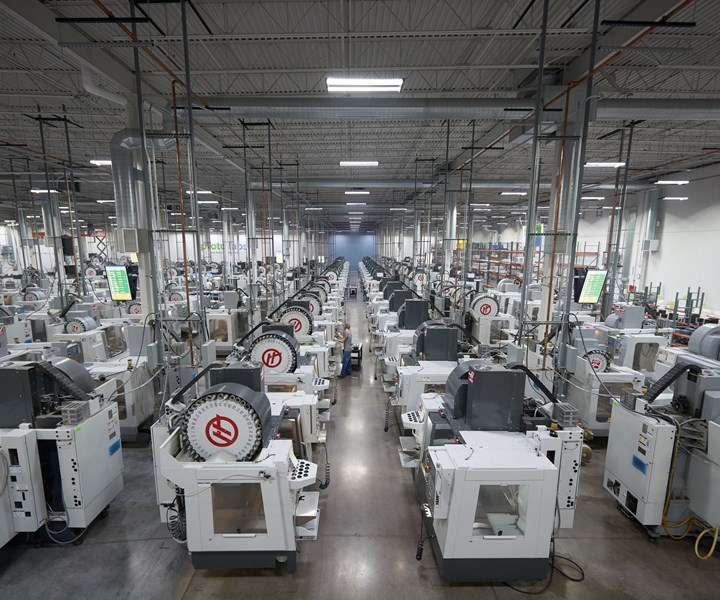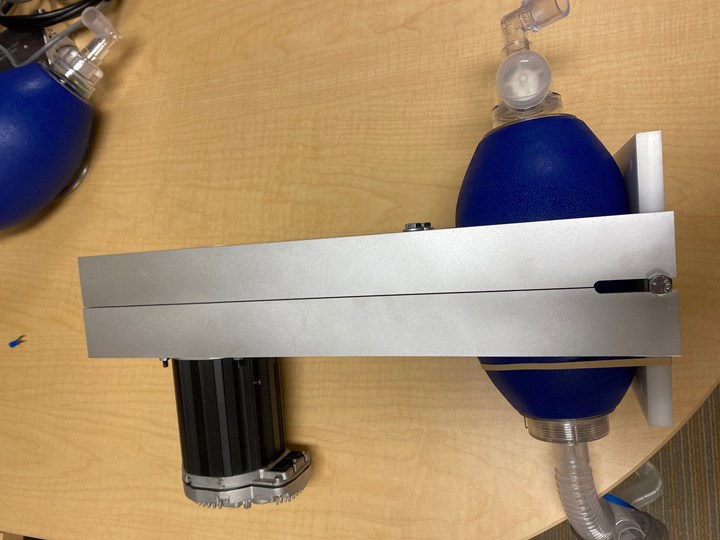Share





Two recent projects demonstrate the potential of digital manufacturing in translating life-saving ideas to real-world products, both at scale and in enough time to make a difference.
The first is a ventilator designed by a team of researchers at the University of Minnesota to be easy to use, and, of more immediate concern, easy to manufacture quickly. The second is a facemask from Zverse, a 20-employee design firm. Both relied on the same manufacturing partner to bring their ideas to fruition: Protolabs, a Minneapolis-area provider of CNC machining, injection molding and 3D printing services where automation extends beyond the shop floor. “Once an order is received, our software automates much of the manual engineering and skilled labor that is normally required to manufacture parts,” a company representative explained via email. “As a result, in many cases we are able to quote orders in minutes and ship parts as soon as the same day ordered.”

Protolabs’ capacity includes injection molding and 3D printing equipment in addition to these rows of CNC machining centers. Image: Protolabs
Whether parts are CNC machined, injection molded or 3D printed, Protolabs’ process begins the same way: the submission of a 3D CAD file via the company’s website. Within minutes, its software assesses manufacturability and returns a quote, along with suggested modifications.
Injection molding is the process in highest demand right now, the company reports. However, getting molded parts into production requires producing a tool first, and, prior to that, significant back-and-forth among all parties involved to finalize designs and terms. With a process designed to streamline these latter tasks, Protolabs was reportedly able to begin molding face masks for Zverse within 48 hours of receiving a CAD file. Along with the efforts of other partners, this has been critical to increasing production enough to produce 20 million face shields by July.
For the ventilator, the primary value of Protolabs’ software automation was getting the design FDA approved in the first place. According to the University web site and recent news coverage, the system is not meant to replace models found in modern medical facilities. Rather, it is intended as a backup – a tool hospitals can build on their own when more sophisticated equipment is not available. With the concept proven by models built from scavenged parts, the researchers turned to Protolabs to finalize a prototype built from a set of standard, easily fabricated components.

For the ventilator, Protolabs created an enclosure, plunger and rod assembly. Image: Protolabs.
Components for these two projects represent only a portion of the medical parts produced at Protolabs in response to the pandemic, ranging from test kits and face masks to face shield clips, medical transport carts and, in one case, 3D-printed kits for transforming snorkels to ventilator masks. “Our digital manufacturing services lend well to this urgency, and we’re honored and humbled to make a difference,” the company representative wrote.
Related Content
-
Inside the Premium Machine Shop Making Fasteners
AMPG can’t help but take risks — its management doesn’t know how to run machines. But these risks have enabled it to become a runaway success in its market.
-
Same Headcount, Double the Sales: Successful Job Shop Automation
Doubling sales requires more than just robots. Pro Products’ staff works in tandem with robots, performing inspection and other value-added activities.
-
CNC Machine Shop Honored for Automation, Machine Monitoring
From cobots to machine monitoring, this Top Shop honoree shows that machining technology is about more than the machine tool.

























